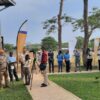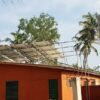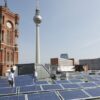“The most important facility of the village is now electrified”
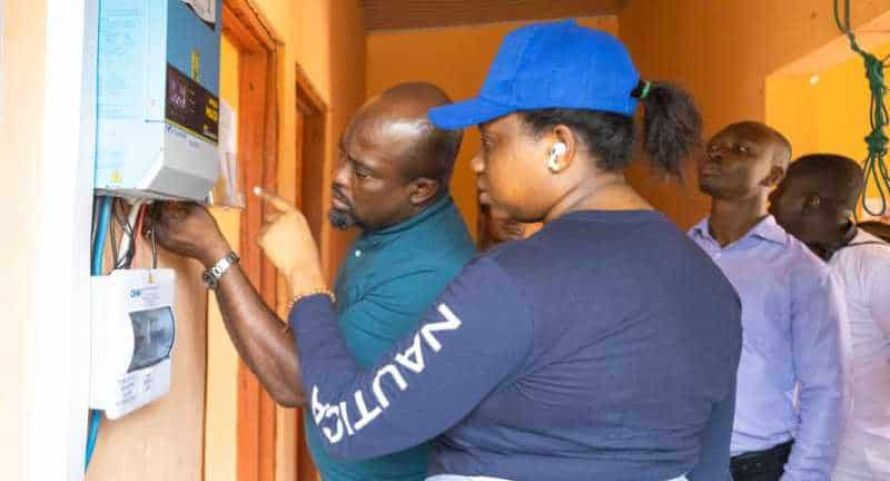
Cedikope with its 800 inhabitants is located on an island in the southern part of Lake Volta. It takes 30 minutes to get there by boat. Seth Mahu, the Director of Renewable Energy at the Ghanaian Ministry of Energy, travelled to the island anyway. There, Green People´s Energy (GBE) has electrified one of 31 health centres in the region , since it is not connected to the national electricity grid. In this interview, Seth Mahu talks about what this means for the community and the electrification of the country.
The journey to Cedikope is arduous. Why did you visit the place?
Because this place is a good example of our current situation with the electrification of the country. Connecting a village like Cedikope with its 800 inhabitants to the electricity grid is a big challenge, even more so when it is located on an island. Green People´s Energy has closed the supply gap with the help of photovoltaics. The most important facility on the island, the health centre, is now electrified. Now emergencies can be treated, equipment operated, medicines and vaccines refrigerated.
What does this change for the people here?
It fundamentally improves their health care. The staff can now carry out many treatments directly in Cedikope and have to refer fewer patients to the mainland. The number of treatments is increasing. In addition, the health centre staff are now ready to move to the island. Until now, they have lived on the mainland because it is more comfortable to live with electricity. Only in emergencies did they come to the island by boat. So the situation has improved a lot for the inhabitants.
What signal does the project send out?
I would describe this measure as a precursor for larger electrification projects in the country, because it fits in with the plans of our government. We want to increase the share of renewable energies in the electricity mix and give more people access to electricity. At the same time, we want to shift our energy production from carbon-intensive energy sources to low-carbon, for example renewable ones. It is important for me to emphasise that the installation at Cedikope is not too different from the steps we are taking at other facilities in the country.
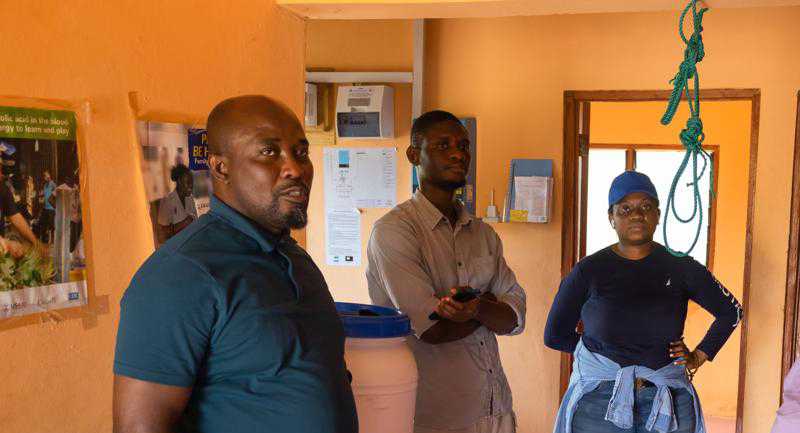
How do you plan to electrify the country?
Decentralised power supply is part of the three strategies the government is using to improve access to electricity. On the one hand, we are doing this by further expanding our electricity grid, and on the other hand, we are focusing on decentralised electrification. But many people also depend on biomass for cooking, for example. Thirdly, we need to improve the efficiency of these fuels.
Rural electrification poses challenges for many countries. What approaches are needed so that access to energy becomes the rule there and does not remain the exception?
As a ministry, our primary goal is to connect the entire country to electricity. We want to ensure universal access by 2025. Therefore, we have designed a number of strategies and programmes. For one, we want to install more mini-grids far away from electricity grids, which are fed by renewable energies. We want to supply communities like Cedikope with such mini-grids.
What about smaller communities?
Mini grids are not worthwhile there, so we are focusing on solar home systems. And we encourage all households to get such systems so that they can use basic energy services for lighting, entertainment or productive purposes. The triad of our strategy is: grid extension, mini-grids, solar home systems to improve access to electrification in rural Ghana.
What do you appreciate about the Cedikope plant?
I inspected the plant. The installations have been carried out by a Ghanaian solar company in an exemplary manner. I am very pleased about that. What pleases me even more: Actually, significantly fewer health centres in the districts of the southern and northern Kwahu Afram Plains were supposed to be supplied by Green People´s Energy with solar power. Now, thanks to them, 30 systems have been installed in a poorly supplied region. I am convinced that the communities here will feel the positive effects of this project in the next 10 to 20 years, and we should take this as an example.
Personal details: Engineer Seth Mahu is the Director of Renewable Energy at the Ghanaian Ministry of Energy and is responsible for the development of renewable energy in Ghana. At the same time, he is chairman of the Green People´s Energy steering committee, in which a total of 8 partners together with GIZ control the strategic implementation of the project.
